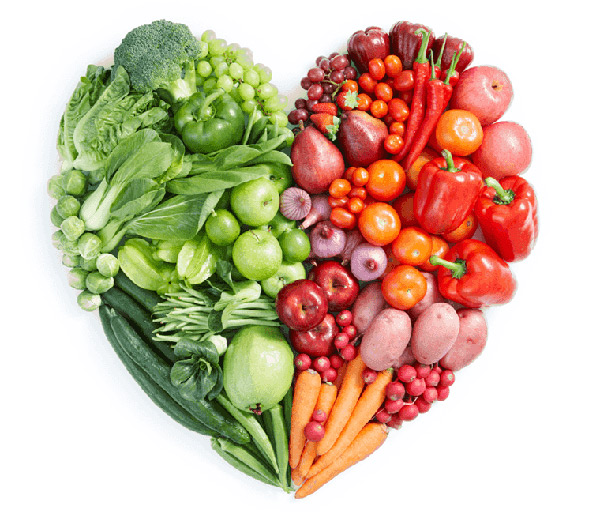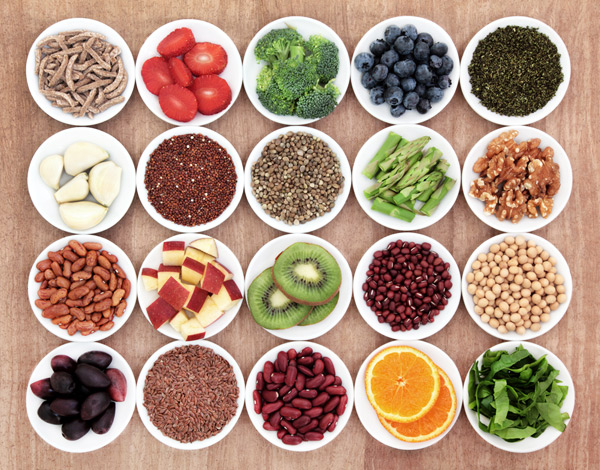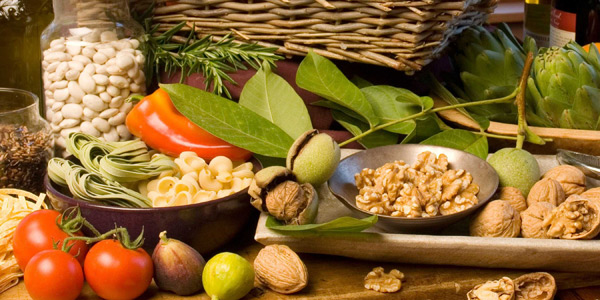 Such headlines are read by us daily: Michelle Obama’s is now tackling child obesity and planting an edible garden. In a recent U.N. study it said eating less meat is better for the planet — either way, there’s no doubt that reducing your meat intake and embracing a plant-based diet is one of the best things you can do for your health and the environment. The Meatless Monday campaign is gaining nationwide momentum. Simply cut back on your meat intake, starting on Mondays.
Such headlines are read by us daily: Michelle Obama’s is now tackling child obesity and planting an edible garden. In a recent U.N. study it said eating less meat is better for the planet — either way, there’s no doubt that reducing your meat intake and embracing a plant-based diet is one of the best things you can do for your health and the environment. The Meatless Monday campaign is gaining nationwide momentum. Simply cut back on your meat intake, starting on Mondays.
A plant-based diet is a diet of any animal (including humans) based on foods derived from plants, including vegetables, whole grains, legumes and fruits, but with few or no animal products. The use of the phrase has changed over time, and examples can be found of the phrase “plant-based diet” being used to refer to vegan diets, which contain no food from animal sources, to vegetarian diets which include eggs and dairy but no meat, and to diets with varying amounts of animal-based foods, such as semi-vegetarian diets which contain small amounts of meat. Plant-based diets have been noted to offer certain health benefits to humans, whether they are entirely plant-based and free of animal-based foods, or contain limited amounts of them.
It has been proposed that many people live on a plant-based diet out of economic necessity. As of 1999 it was estimated that “an estimated 4 billion people live primarily on a plant-based diet”, and that “shortage of cropland, freshwater, and energy resources requires that most of the 4 billion people live primarily on a plant-based diet”.
Historically, examples can be found of the phrase “plant-based diet” being used to refer to diets with varying amounts of animal-based foods, from none at all (vegan) to small amounts of any kind of meat, so long as the primary focus is on plant-based foods (semi-vegetarian). The 2005 book, The China Study, by T. Colin Campbell, the Jacob Gould Schurman Professor Emeritus of Nutritional Biochemistry at Cornell University, and his son Thomas M. Campbell II, a physician, tended to equate a plant-based diet with veganism, although at points the book describes people having a “mostly” plant-based diet. Vegan wellness writer Ellen Jaffe Jones stated in a 2011 interview:
I taught cooking classes for the national non-profit, Physicians Committee for Responsible Medicine, and during that time, the phrase “plant-based diet” came to be used as a euphemism for vegan eating, or “the ‘v’ word.” It was developed to take the emphasis off the word vegan, because some associated it with being too extreme a position, sometimes based exclusively in animal rights versus a health rationale.

More recently a number of authoritative resources have used the phrase “plant-based diet” to refer to diets including varying degrees of animal products, defining “plant-based diets” as, for example “diets that include generous amounts of plant foods and limited amounts of animal foods”, and as diets “rich in a variety of vegetables and fruits, legumes, and minimally processed starchy staple foods and limiting red meat consumption, if red meat is eaten at all”.
In various sources, “plant-based diet” has been used to refer to:
- Veganism: diet of vegetables, legumes, fruit, grains, nuts, and seeds, but no food from animal sources.
- Fruitarianism: vegan diet consisting primarily of fruit.
- Raw veganism: vegan diet in which food is uncooked and sometimes dehydrated.
- Vegetarianism: diet of vegetables, legumes, fruit, nuts, etc, that may include eggs and dairy, but no meat.
- Ovo-lacto vegetarianism: includes dairy and eggs
- Ovo vegetarianism: includes eggs but no dairy
- Lacto vegetarianism: includes dairy but no eggs
- Semi-vegetarianism: mostly vegetarian diet with occasional inclusion of meat and/or poultry.
- Macrobiotic diet: semi-vegetarian diet that highlights whole grains, vegetables, beans, miso soup, sea vegetables, and traditionally or naturally processed foods, with or without seafood and other animal products.
- Pescatarian: semi-vegetarian diet with eggs, dairy and seafood.
Best Plant-Based Diets
Plant-based diets are good for the environment, your heart, your weight and your overall health. U.S. News defines plant-based as an approach that emphasizes minimally processed foods from plants, with modest amounts of fish, lean meat and low-fat dairy, and red meat only sparingly. The experts who rated the 11 diets below put the Mediterranean diet at the top of the list. Among the qualities considered were each diet’s ability to deliver weight loss, provide good nutrition and safety, and be relatively easy to follow.
Mediterranean Diet
The Mediterranean diet is the top plant-based diet, earning relatively high marks in all areas of assessment. Experts declared it safe and nutritious, and though it wasn’t designed for losing weight, it works fairly well as a plan for quick weight loss. “This is a very healthy, nutritionally sound diet,” one expert said.
Flexitarian Diet
The Flexitarian diet did almost as well. It garnered particularly good ratings from experts for nutrition, safety and heart-health. It’s also easy to follow because it emphasizes adding plant-based foods where you can, rather than imposing strict restrictions. “It’s a sensible eating plan,” one expert said. “It’s a realistic approach to achieving a healthier style of eating.”

Ornish Diet
Experts were impressed that the diet is nutritionally sound, safe and tremendously heart-healthy. The Ornish diet involves lots of complex, fiber-loaded carbs (think fresh fruits, veggies and whole grains) and little fat, especially the saturated kind.
Traditional Asian Diet
The Asian diet ranked well against other plant-based diets. Experts were particularly impressed with its nutrition and safety, though they were apprehensive about its ability to deliver long-term weight loss. Still, “the nutritional balance is better than most other plant-based or vegan diets,” one expert said.
Vegetarian Diet
The vegetarian diet pulled in strong scores in areas such as short-term weight loss, heart health and nutritional completeness. It’s also relatively good for managing or preventing diabetes, thanks to an emphasis on fruits, veggies, grains and plant-based protein sources such as tofu.
Anti-Inflammatory Diet
The Anti-Inflammatory diet stands in the middle of its plant-based counterparts. Experts handed out lackluster 2-star ratings in categories such as overall weight loss and easiness to follow. “It makes eating very technical,” one expert warned.
Engine 2 Diet
Experts sent the Engine 2 Diet toward the bottom of the plant-based list. “The diet is too extreme,” one expert warned. “It’s difficult to maintain for any length of time.” Experts also questioned the plan’s elimination of vegetable oils, and said more research is necessary to determine whether that’s a beneficial move.
Vegan Diet
The experts were lukewarm on veganism, despite giving it fairly high marks as a diabetes or heart disease diet. It’s more restrictive than other plant-based options, offers no built-in social support, and may skimp on important nutrients.
Eco-Atkins Diet
Eco-Atkins wasn’t a standout on the plant-based list. It’s restrictive and offers little guidance. Still, it emphasizes filling, high-fiber foods: Following the plan means eliminating all animal products and focusing on beans, nuts, high-protein veggies and grains such as couscous and pearl barley.
Macrobiotic Diet
As far as plant-based diets go, you can do better, the experts concluded. Following the plan is a challenge and it’s very strict. Still, you won’t go hungry – the filling menu emphasizes veggies, beans and soybean products such as tofu and tempeh.

Health benefits of eating a Plant-based diet
Health:
The basis of this guide is health, and many people switch to eating plants because they want to lose weight, improve their heart health, stay healthy as they age, improve blood pressure or deal with diabetes. A plant-based diet has been shown to help with all of these things — if you also stay away from the processed foods. A diet of processed flour and sugar and fried foods isn’t healthy even if it’s all plants (more on this below). The healthiest populations in the world are plant based: the Okinawans (traditionally at almost all plants such as sweet potatoes, soybeans, lots of veggies, with a little fish and occasional pork), the Sardinians (beans & veggies, red wine, some cheese, meat only once a week), and the vegan Seventh-Day Adventists in Loma Linda, California who are the longest-living Americans. Eating plants is the best thing you can do to reduce your risk of the leading causes of death.
Environment:
Honestly, while this is very important reason, it’s probably the least important of the three reasons on this list.. But it’s huge: the biggest way to reduce your carbon footprint is to stop eating animal products — better than giving up a car (next best) or using less energy in your home or traveling by plane less or recycling or using solar energy or driving an electric car or buying fewer things.
The animals we raise for food production use a ton of resources, eat way more plants than we do (which in turn also require resources to be grown), give off huge amounts of planet-warming methane, breathe out a lot of carbon dioxide, and create a lot of pollution. This 2006 United Nations report concludes that “Livestock have a substantial impact on the world’s water, land and biodiversity resources and contribute significantly to climate change. Animal agriculture produces 18 percent of the world’s greenhouse gas emissions (CO2 equivalents), compared with 13.5 percent from all forms of transportation combined.” And it takes 4,000 to 18,000 gallons of water to make the beef for one hamburger, according to a recent report from the U.S. geological survey.
Compassion:
This is the one of the most important reason to move away from eating animals. I’ve talked a lot about compassion on this site, but by far the most cruel thing any of us does each day is consume animals (and their products). The cruelty that is perpetuated on these living, feeling, suffering beings on our behalf is enormous and undeniable. If you don’t believe me, watch this video with Sir Paul McCartney or this video about pigs. While I became vegan for health reasons, I stick with it for reasons of compassion — wanting to reduce the suffering of other sentient beings.
But … if you don’t do it to avoid pollution, heart disease, cancer, diabetes, stroke, increased death rates, animal cruelty, global warming, deforestation, and higher costs … maybe weight loss would do it. Vegetarians and vegans weigh less on average than meat eaters. That’s even after adjusting for things like fibre, alcohol, smoking … and calorie intake! Half of Americans are obese, but vegans tend to be much less obese (with exceptions of course).
That said, just going vegan will not necessarily cause you to lose weight. You could easily eat a lot of sugar, white flour, fake meats and fried foods and gain weight. If you eat whole plant foods, you’re likely to lose weight. Plant foods, for starters, have pretty much no saturated fat, low calories and tons of fiber, while animal foods all have saturated fat, lots of calories and zero fiber.
Disclaimer
The Content is not intended to be a substitute for professional medical advice, diagnosis, or treatment. Always seek the advice of your physician or other qualified health provider with any questions you may have regarding a medical condition.